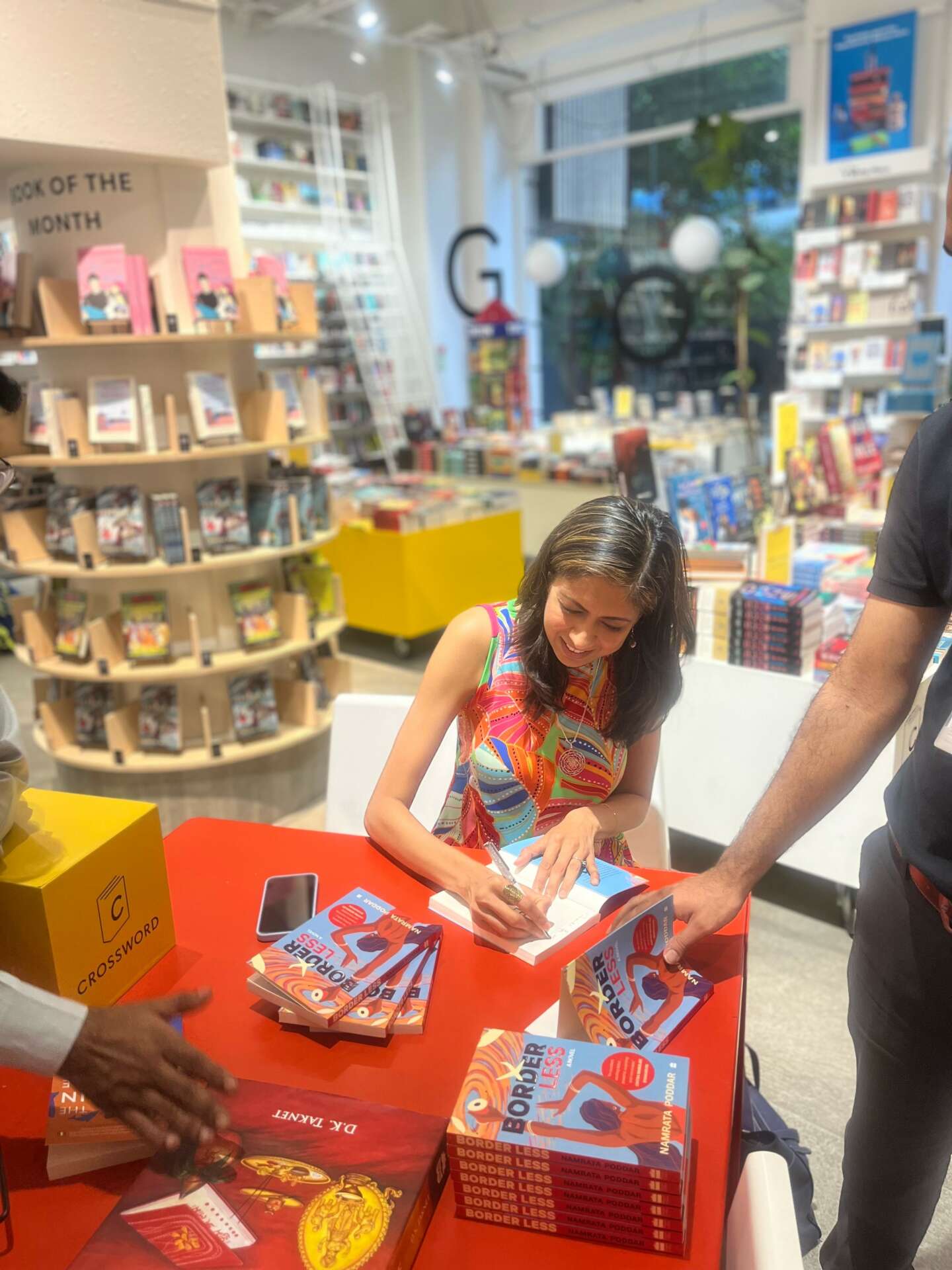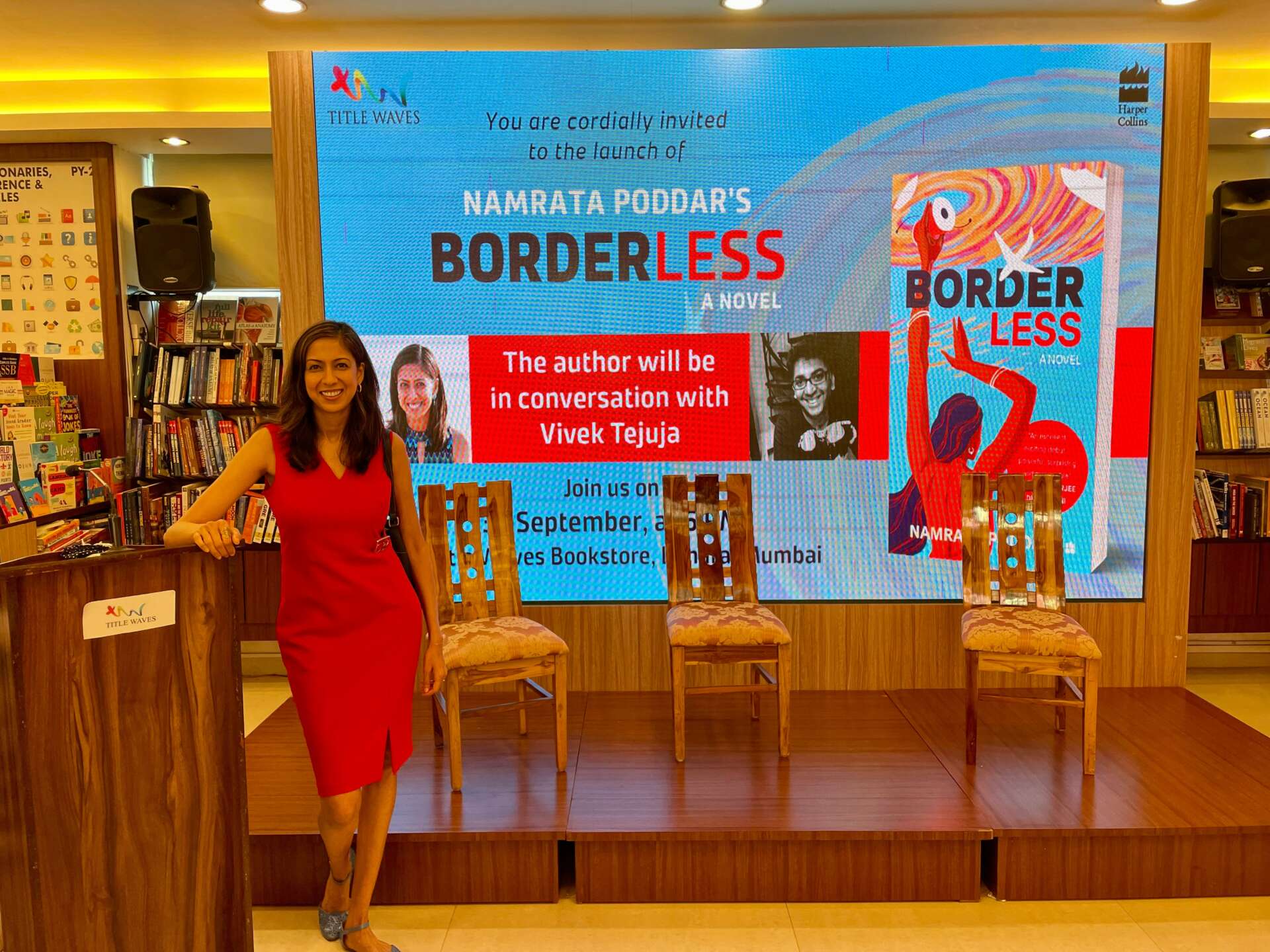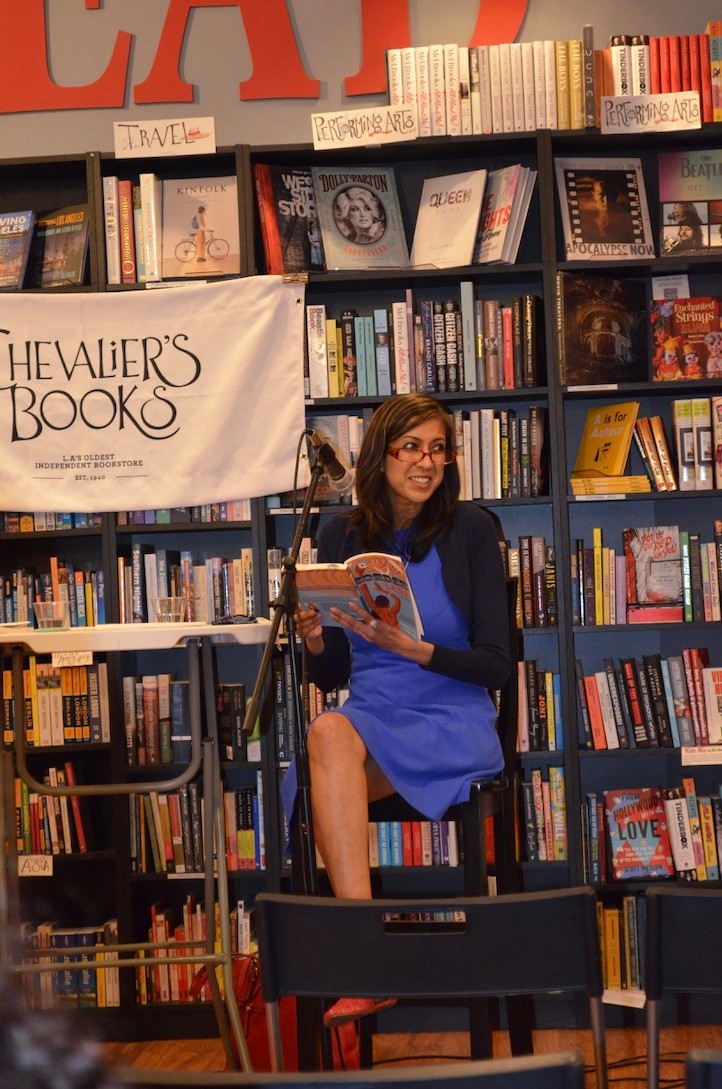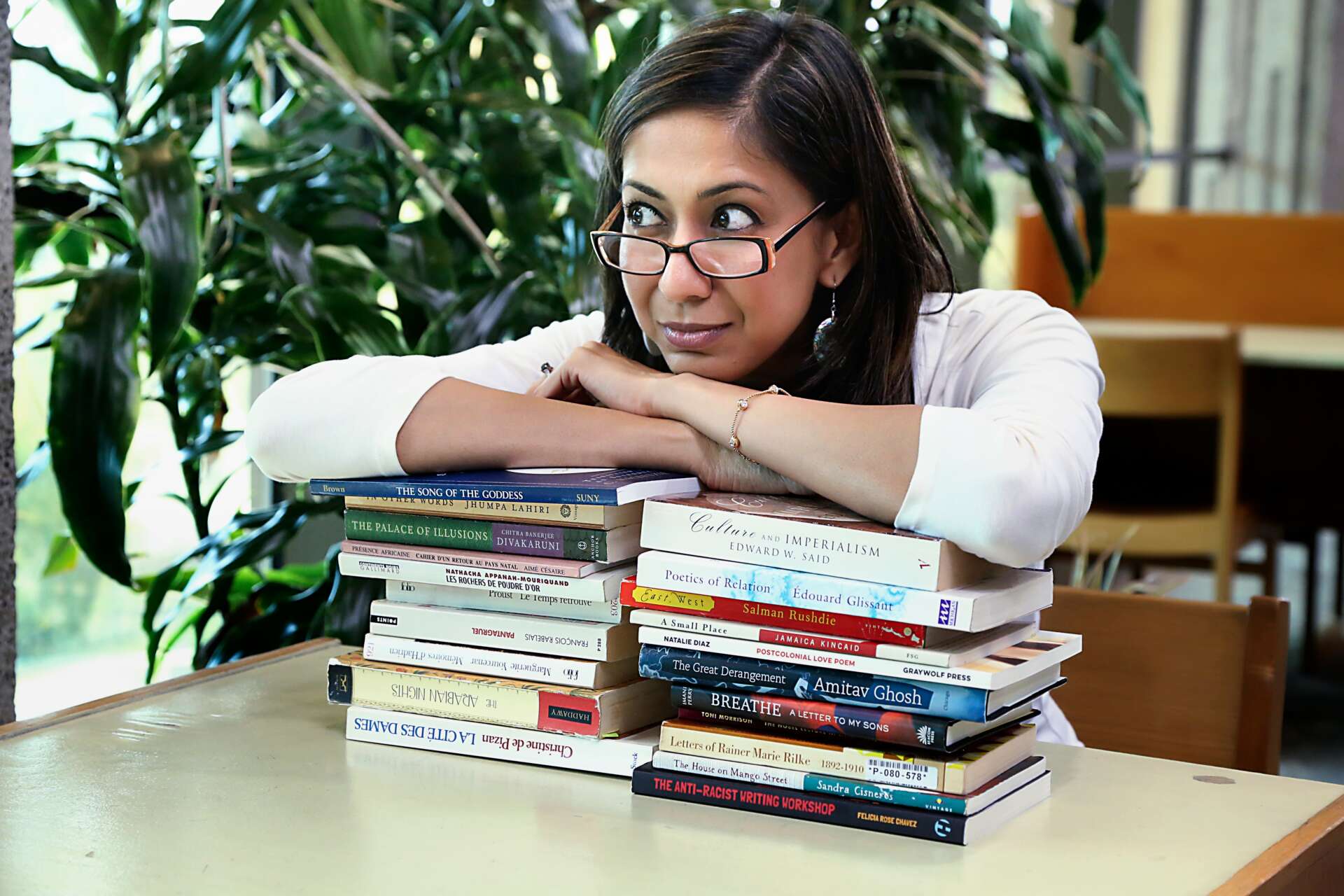We caught up with the brilliant and insightful Namrata Poddar a few weeks ago and have shared our conversation below.
Namrata , thanks for joining us, excited to have you contributing your stories and insights. What did your parents do right and how has that impacted you in your life and career?
Many things but to list a couple: They loved me unconditionally and never questioned my desire to pursue my heart, in my personal or professional life. My mother instilled the values of education, community and financial responsibility in me; my dad instilled the love of music, language and art in me.

Namrata , before we move on to more of these sorts of questions, can you take some time to bring our readers up to speed on you and what you do?
Hi everyone! A little about me:
I’m a first-generation South Asian American writer of fiction and nonfiction, editor and faculty of literature at UCLA. For about two decades, most of my writing, teaching and editorial work has focused on the idea of decolonization, on how People of the Global Majority think through some of big ideals we hold dear as human beings–family, love, art, storytelling, justice, freedom, healing, and more–and tell stories from outside of the colonial imagination or dominant ways of thinking.
My latest work of writing here is my debut novel, “Border Less,” that released in North America and South Asia last year. The book was a Silver Medalist for Best Regional Fiction for West-Pacific from 2023 Independent Publisher Book Awards, a finalist for Foreword Indies Book of the Year Award and Feminist Press’s Louise Meriwether First Book Prize, and longlisted for The Center for Fiction First Novel Prize. Set predominantly in Mumbai and Greater Los Angeles, “Border Less” tells the story of Dia Mittal, an airline call center agent in India who migrates to the United States in search of a better life. Throughout the novel though, Dia’s checkered relationship with the American Dream dialogues with the experiences and perspectives of a global South Asian community across the class spectrum—call center agents, travel agents, immigrant maids, fashion designers, blue- and white-collar workers in the hospitality industry, junior and senior artists in Bollywood, hustling single mothers, academics, tourists in the Third World, refugees displaced by military superpowers, Marwari merchants and trade caravans of the Silk Road, among others. What connects the book’s web of brown bordercrossing characters is their search for belonging and a negotiation of power struggles, impacted by factors of race, class, caste, gender, faith, age or place. With its fragmented form, staccato rhythm, repetition, and play with the English language, “Border Less” is my stab at decolonizing the Western novel.
These days, when I’m not teaching or freelancing, I’m working on a second book, a memoir in essays, that continues my obsession with exploring what decolonizing one’s mind can mean, this time via ideals of motherhood, love, family, and healing.

Are there any resources you wish you knew about earlier in your creative journey?
Yes, I truly wish I had access to a writing community that talks openly about financial literacy and sustainability for “minority” writers; meaning, writers who don’t come from generational wealth or with historic access to cultural capital due to privileges of race, caste, class, gender, passport, ableism, etc.


What’s the most rewarding aspect of being a creative in your experience?
The consistent feeling of living life in harmony with my calling. I’m aware what a luxury this is, and I’m very grateful.

Contact Info:
- Website: namratapoddar.com
- Instagram: @writerpoddar
- Linkedin: namratapoddar
- Twitter: @poddar_namrata
Image Credits
Elena Bessi (for the Headshot)


